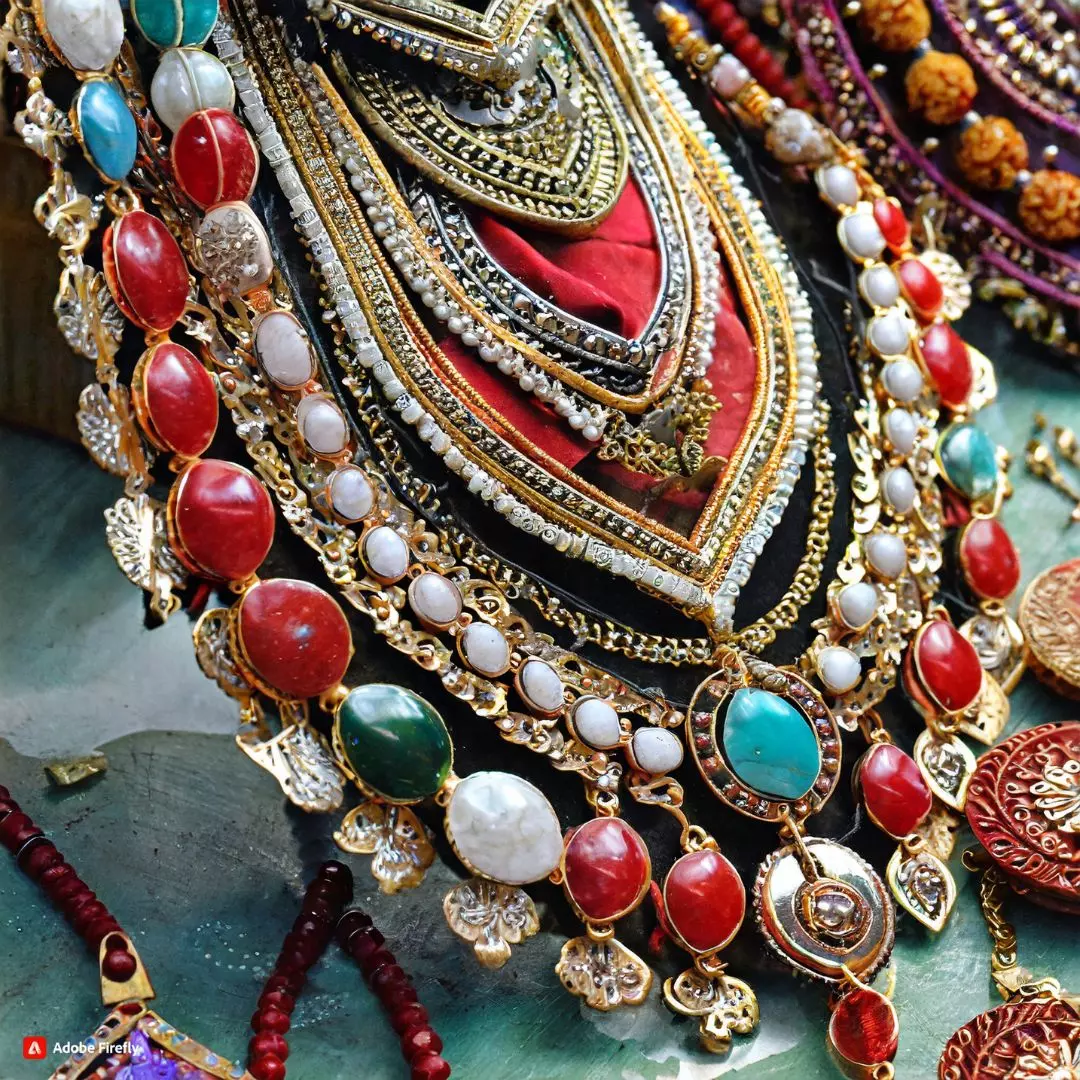For over 5,000 years, the intricate craft of jewellery making has been an unbroken tradition in India, a testament to the country’s rich cultural heritage. From the early use of natural materials to the present-day opulence, Indian jewellers have seamlessly woven the gifts of nature into timeless pieces of gold and silver. Let’s delve into the fascinating journey of Indian jewellery, where each piece narrates a story of craftsmanship, heritage, and artistic finesse.
In the early chapters of India’s history, artisans meticulously handcrafted jewellery from abundant natural materials like seeds, feathers, leaves, and more. Inspired by the beauty of real flowers and leaves, these skilled craftsmen transformed nature’s offerings into exquisite body adornments. Even today, various tribal societies continue to cherish and use such jewellery, keeping the ancient traditions alive.
Excavations at historical sites, including Mohenjodaro, reveal a treasure trove of handmade ornaments from the Indus Valley civilization. Both men and women of that era adorned themselves with jewellery crafted from gold, silver, copper, ivory, and precious and semi-precious stones, showcasing the enduring allure of these timeless pieces.
Exporting Excellence
By the third century B.C., India emerged as the leading exporter of gemstones, particularly diamonds, highlighting the nation’s mastery in the art of jewellery making. Interestingly, while gemstones were sourced locally, gold was often imported, a practice that persisted through the Mughal period.
The diversity of India’s cultural landscape is mirrored in its jewellery-making traditions. From the regal designs of Rajasthan to the colourful creations of Gujarat, each region contributes to the vast and varied jewelry repertoire. The craft extends beyond personal adornment, with jewellery crafted for gods, ceremonial elephants, and horses, reflecting its profound cultural significance.
Jewellery in India transcends mere aesthetics; it symbolizes divine abundance and material blessings. The rajas and maharajas of bygone eras competed to possess the most exquisite pieces. In Hindu, Jain, and Sikh communities, jewellery played a pivotal role as part of streedhana, symbolizing security and investment.
Craftsmanship Through Ages
Goldsmiths, known by various names like sonar, swarnakara, panchallar, or thattan, held a prestigious position in ancient India, working with the precious metal. The skills of these artisans encompassed a range of techniques, from mixing alloys to setting stones, creating a legacy that endures to this day.
Different regions of India boast unique jewellery-making styles, from filigree work in Orissa and Andhra Pradesh to enamelling in Jaipur. The influence of the Mughals is evident in meenakari and kundan styles, while temple jewellery from Nagercoil showcases traditional gold ornaments. Designs inspired by nature, such as those in Tamil Nadu and Kerala, and intricate silverwork from Himachal Pradesh, contribute to the diverse tapestry of Indian jewellery.
From the ancient times of the Indus Valley civilization to the present day, the art of Indian jewellery making has evolved into a timeless expression of elegance. Rooted in tradition, these pieces continue to captivate the world with their intricate designs, symbolic significance, and regional diversity. As Indian jewellers blend the old with the new, the legacy of craftsmanship lives on, ensuring that each piece tells a story of beauty, belief, and enduring artistry.
Also Read: The Cultural Kaleidoscope of Puducherry: A Harmony Of Heritage, Festivals & Diversity











